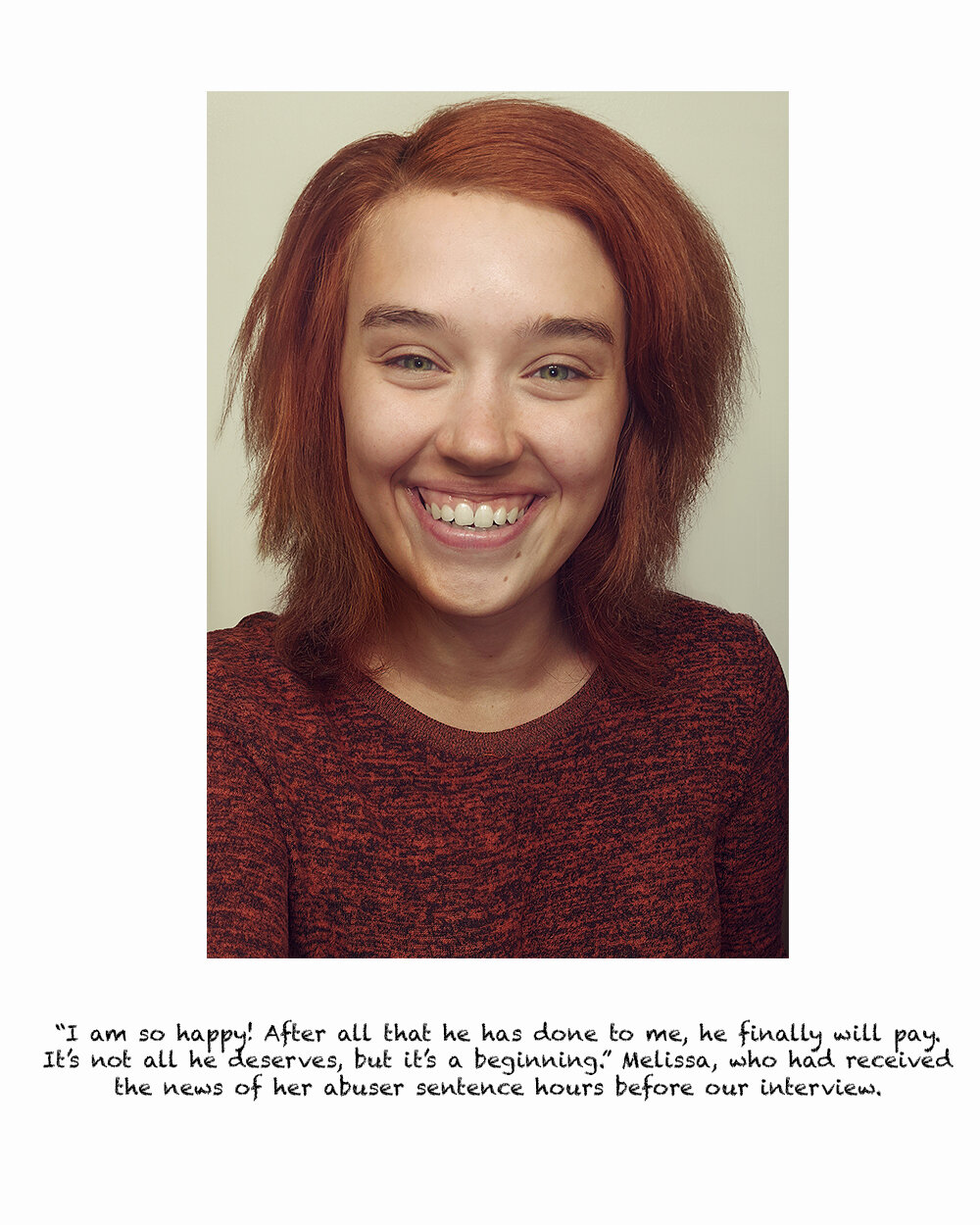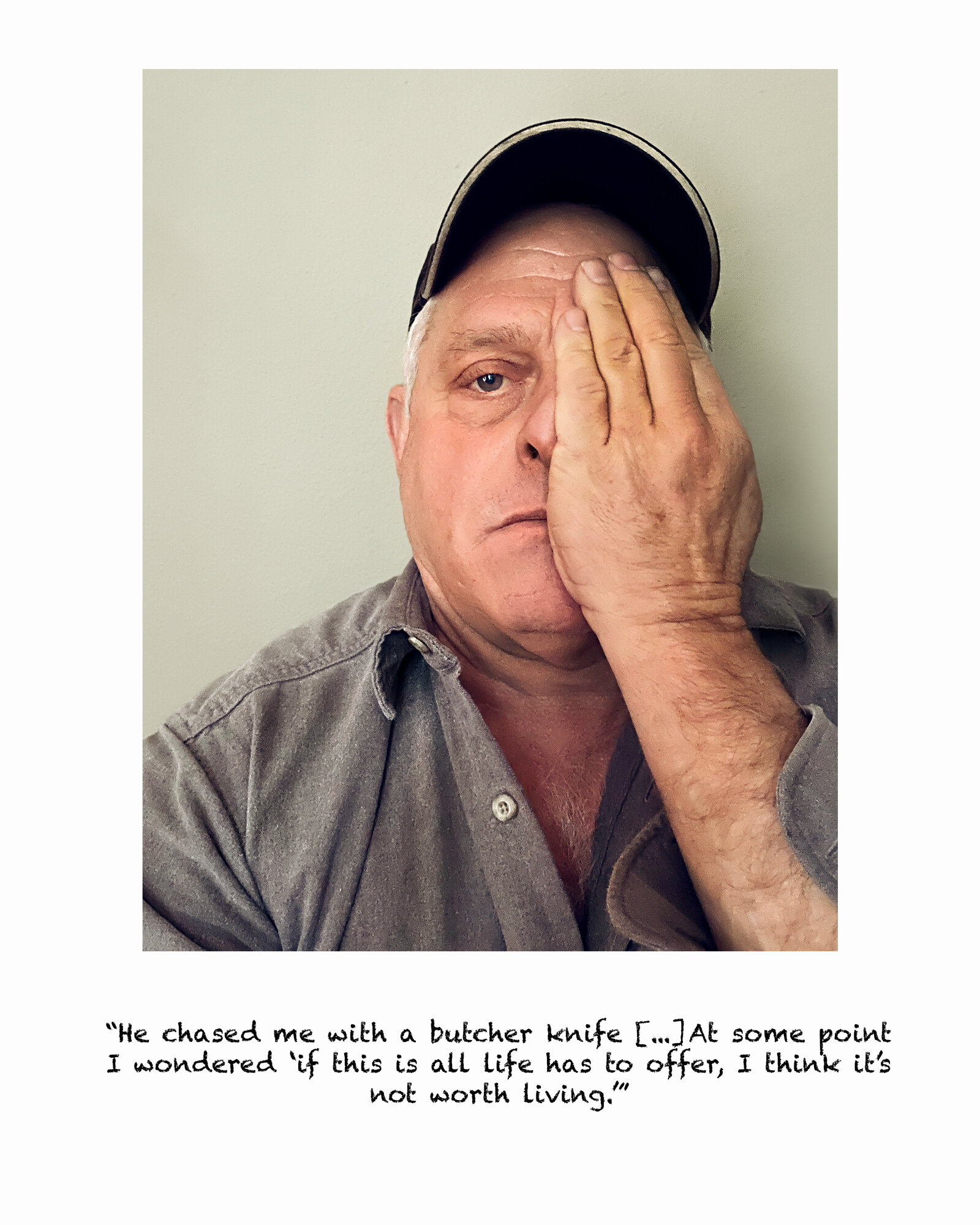Preface:
When my first stepfather, George, came into our lives, I was 12 years old. At the time, I could not fully grasp the concept of having a "new father" in our house, but I admit that the idea did not sound too exciting. It was not up to me or my sister to decide, however. So, we quickly grew used to having someone who wasn't my father become "the man of the house." At first, George appeared to be just another ordinary man living under the same roof. Gradually, however, his personality started to reveal itself.
The once friendly man we thought we knew during the sporadic visits and early stages of our mother's relationship with him changed over time: What started as a beer once a week became a beer every other day, then a beer a day, and then several packs of beer and cigarettes every day.
Life became a series of short moments or normalcy between drinking and smoking. In parallel with the drinking habits, his arguments, complaints about everything and everybody, and eventually, verbal fights with our mother, became more and more constants, and eventually became part of our daily routine.
It was in this environment that I first experienced domestic violence.
Because the fights became so constant, my sisters and I learned how to normalize his behavior. "Here we go again," we would whisper when a loud shouting match started, or when an object would fly across the room. To this day, we still vividly remember the time he judged lunch not to be well seasoned enough and so he threw his plate still full of food on the wall. The greasy circle stayed on that beige kitchen wall for many years, as if to remind us of who was the boss.
One random afternoon, while my sister Priscila and I were playing a game of charades and I had endured round after round of losing, I went to ask
for Mother's help, so I knocked on her bedroom door:
-- “ Mom, can you, please, tell me the name of a city that starts in J?”
I could hear her cryin, but decided to pursue my question, to no avail.
-- “ Mom, can you, pleas…”
The door opened abruptly, but instead of Mother at the door, it was George.
--” What the fuck do you want?” He screamed as he pushed me.
Young children might be the most fragile things. But in our minds, we think that we have life figured out and that we are already adults. It didn't help the fact that, because of my obsession with drawing, I was constantly reading and watching superhero comics.
So, in my mind, facing a villain was a matter of honor and the right thing to do. After all, that’s what superheroes do, right?
As George pushed me for the second time, I stood my ground and made a fist, signaling that I was ready for battle. Big mistake. I was about to find out that comic book hero bullshit wouldn't cut it.
Before I could understand what would happen next, I felt a starburst, followed by a funky numb pressure in my left eye. The next thing I knew, I was on the floor with a big black swollen eye. I remember crying and screaming, "He kicked me in the eye! He just kicked me in the fucking eye!" This was also my first recollection of swearing at something or somebody, a habit that has remained in my life.
To this day, the event in its entirety is a blur, but I remember hearing commotion among my mother and sisters. I remember my mother saying, "Come on; he's just a kid. Aim your anger at me, not him," in an attempt to protect me.
Meanwhile, my sisters ran to get me a bag of peas.
After calming George and ensuring he would not attack me again, Mother turned in my direction. I was still sitting on the floor, with my back up against the bunk bed, in shock, trying to make sense of what had just happened. I felt a stinging pain around my eye and kept running my fingertips over it as if to keep checking whether something was broken. What I didn’t realize at the time was that my pride and my soul were the things irreparably cracked.
Mother looked at me, rubbed my now purple eye, kissed it, and then said with a soothing voice:
--“Look at me”. I refused.
--“Pedro, look at me." She said more firmly as if giving me an order, to which I obliged.
--“Please, don't tell anyone. If somebody ever asks you, this was a mosquito bite, OK? He was upset with me, but I promise, it won't ever happen again. It was just this time!” But it wasn't.
“It Was Just This Time.”
According to the New England Journal of Medicine, a CDC survey from 2015 found that one in four women and one in ten men experience intimate partner violence (IPV). As of 2020, 16% of homicides in the United States were perpetrated by a victim’s intimate partner.
The abuse comes in various forms including verbal abuse, financial control, emotional neglect, physical aggression, sexual abuse, and more.
A 2020 report by the Tulane University), brought to light what they called “a pandemic inside a pandemic.” Due to an array of reasons, but mainly financial dependency, partners experiencing IPV are forced to live with their aggressor, a situation aggravated by the lockdown. This report cited a 10% increase of those who reported experiencing IPV prior to and after the pandemic.
"It Was Just this Time" is a photo essay developed by photographer and documentarist, Pedro Oliveira, during the Covid-19 lockdown.
Using remote access, Pedro interviewed via zoom and photographed with smartphones, men and women from different walks of life, socioeconomic backgrounds, creed, sexual orientation, and age, reporting on survivors, and sharing fragments of their experience with domestic violence.
Having suffered domestic violence as a child for many years, the ethos of Pedro’s project is to portray not only the issues involving domestic violence but also to celebrate the resilience of those able to break from the vicious cycle, while, hopefully, sending a message of encouragement to those still suffering from IPV and struggling to get out of their abusive relationships.











